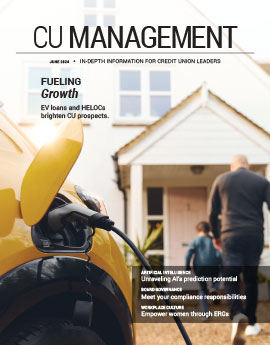2 minutes
 Humans are lazy thinkers. Although the brain comprises only about 2.5 percent of our body weight, it generally uses 20 percent of the body's energy. That's why the human learning machine prefers to operate in a low gear—on autopilot—as much as possible: It's a conservation thing. As Nobel laureate and behavioral economist Daniel Kahneman puts it, "Laziness is built deep into our nature."
Humans are lazy thinkers. Although the brain comprises only about 2.5 percent of our body weight, it generally uses 20 percent of the body's energy. That's why the human learning machine prefers to operate in a low gear—on autopilot—as much as possible: It's a conservation thing. As Nobel laureate and behavioral economist Daniel Kahneman puts it, "Laziness is built deep into our nature."
So (your slothful brain is probably thinking) what's wrong with that? Well, according to Edward Hess, the big problem is that business has taken the "laziness model"—aka operational excellence—as far as it can go.
"The lazy brain is why the operational excellence model—in which companies fight for dominance by being faster, better, and cheaper—rose to dominance in the first place," says Hess, a professor at the University of Virginia's Darden Graduate School of Business and author of the new book Learn or Die: Using Science to Build a Leading-Edge Learning Organization (Columbia Business School Publishing, 2014, ISBN: 978-0-231-17024-6, $29.95, www.EDHLTD.com). "We take what we already know, replicate it, improve it, and repeat. It is much easier than thinking innovatively.
"Unfortunately, many of the jobs this model creates can now be done by machines," he adds. "Today, the only real competitive advantage is an ability to learn and innovate. That's it. And if your business is set up on the old model, it just doesn't lend itself to learning and innovating."
Fact is, the old operational excellence model provides too many reasons NOT to learn—too many reasons to remain lazy, complacent, robotic. Steeped in the "command and control" paradigm of operational excellence, leaders (and employees) see learning as a high-risk activity. Combine a deeply entrenched attitude that risk-taking is a no-no with the brain's inherent laziness and you get a company that can't innovate its way out of the proverbial wet paper bag.
The implication is clear: If you want to survive the coming Digital Age of Machines (aka the 21st century) you MUST give your culture a serious shake-up. You MUST engage and reward people so strongly that they're willing to override their natural tendency toward laziness and continuously generate and share new ideas.
"In other words, you have to create an idea meritocracy," says Hess. "Doing so requires creating a hybrid business model, one that prioritizes the need for innovation while keeping in play the best aspects of operational excellence—for example, its focus on relentless, constant improvement. Succeeding at this hybrid culture requires a commitment to learning. Lazy brains won't survive."
The University of Virginia's Darden Graduate School of Business is home to CEO Institute III.








